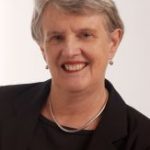November 28, 2019
Research and Learner Autonomy
Featured speakers:
- Anne Burns, University of New South Wales, Australia
- David Palfreyman, Zayed University, Dubai, UAE
Other Presentations (Scroll down for bios and abstracts)
Ellen Head – Autogenic metaphor in reflective dialogues [Slides] [Recording]
Isra Wongsarnpigoon – Summary of the JALT research forum [Slides] [Recording]:
- Louise Ohashi (interview by Satoko Kato) – Roles for teachers in fostering out-of-class, autonomous language learning [Recording] [slides]
- Andrew Tweed (interview by Isra W.) – Agency and affordances in study abroad [Recording] [slides]
- Satoko Watkins (interview by Scott Shelton-Strong) – Learners’ experiences in Interest-based communities: Understanding through a self-determination theory framework [Recording] [slides]
- Ward Peeters (interview by Jo Mynard) – Understanding learner autonomy through research: Online peer interaction [Recording] [slides]
María de la Paz Adelia Peña Clavel – About the upcoming ILA conference in Mexico [Recording]
Sin-Wang Chong – Using exploratory practice to research autonomy of pre-service ESL teachers [Recording] [Slides]
Curtis Edlin – Higgins’ self-discrepancy theory: Implications for advising [Recording]
Satoko, Jo and Hayo – Introduction to the RILAE certificate course on advising [Recording]
Phillip Bennett – The latest issue of Relay Journal [Recording]
In our fifth online LAb session, we will explore ways in which we approach research within the field of learner autonomy. There will be short presentations, including discussions related to approaches to research methodologies, research summaries, work in progress, or ideas about ways in which we implement and investigate learner autonomy in our contexts. We are particularly interested in practice-based research that puts theory to work.
Session facilitators: Satoko Kato, Jo Mynard, Hayo Reinders, Scott Shelton-Strong, Ward Peeters
Abstracts and bios
 Professor Anne Burns, University of New South Wales, Sydney, Australia
Professor Anne Burns, University of New South Wales, Sydney, Australia
Why teacher autonomy must go hand in hand with learner autonomy
【Abstract】
It is questionable whether autonomy can be generated in learners without the presence and motivation of teacher autonomy. As Little (2000:7) remarked: “It is unreasonable to expect teachers to foster the growth of autonomy in their learners if they themselves do not know what it is to be an autonomous learner.” In this discussion I will consider what is meant by teacher autonomy and will suggest a number of ways that language teachers can adopt an autonomous stance to their practice, albeit within the constraints and requirements of the curriculum, syllabus or institutional structures within which they must work.
Little, D. (2000). We’re all in it together: Exploring the interdependence of teacher and learner autonomy. Paper presented at Autonomy 2000, University of Helsinki Language Centre, 7-9 September, 2000.
【Bio】
Professor Anne Burns is Professor of TESOL at the University of New South Wales, Sydney. She is also an Emeritus Professor at Aston University, and an Honorary Professor at the University of Sydney and The Education University of Hong Kong. Her research interests include language teacher education, language teacher cognition, genre theory in language teaching, curriculum development and change, literacy, and written and spoken discourse analysis. She is known for her work in the theory and practice of action research. A recent book, edited with Professor Jack Richards, is The Cambridge Guide to Learning English as a Second Language (2018).
 Associate Professor David Palfreyman, Zayed University, Dubai, UAE
Associate Professor David Palfreyman, Zayed University, Dubai, UAE
Researching learner autonomy in contexts
【Abstract】
Learner autonomy involves learners being able to take charge of their own learning in particular contexts – whether in class, in a learning centre, while doing homework or “in the wild” while living their life outside school/university. In this talk I will briefly review some research on how learners engage autonomously with material, social and discursive resources of different kinds in varied contexts. I will then suggest some research questions which you might investigate, regarding how language learners relate to different kinds of resources, referring to a framework called “Practical Epistemology Analysis”.
【Bio】
David M. Palfreyman works in the College of Education at Zayed University in the United Arab Emirates. His experience includes twenty-five years of teaching on undergraduate and postgraduate programs in English language and teacher education, in higher education institutions and international organizations. His research interests include the role of sociocultural context and discourse in learning by students and practitioners, as well as multilingualism and biliteracy in educational settings. He is the founding editor of the journal “Learning and Teaching in Higher Education: Gulf Perspectives” (LTHE).
Ellen Head, Miyazaki International College, Miyazaki, Japan
Autogenic Metaphor in Reflective Dialogues
【Abstract】
One tool which is sometimes used in language advising is metaphor. In this presentation I will report on a coaching style called “clean language”, which attempts to use only the metaphors which are present in the respondent’s mind already. I will discuss my experience of using open questions with students and the pros and cons of autogenic metaphor versus ready-made metaphor as a tool for exploring one’s experience of learning and teaching.
【Bio】
Ellen Head has taught EFL at various universities in Japan since 2000. Her MA dissertation focused on Japanese students’ views of learner autonomy. Since 2014 she has been interested in helping students to navigate between metaphor, abstraction and concrete discourse modes as a tool of CALP.
 Sin-Wang Chong, The Education University of Hong Kong, Hong Kong
Sin-Wang Chong, The Education University of Hong Kong, Hong Kong
Using Exploratory Practice to Research Autonomy of Pre-Service ESL Teachers
【Abstract】
Exploratory Practice, a form of practitioner research alongside reflective practice, action research, and lesson study, develops trust and encourage participation in research by all actors in a particular educational milieu (Ding, 2009; Hanks, 2017). Through involving students as co-researchers and underscoring the voice of the students, Exploratory Practice is regarded as a type of “fully inclusive practitioner research” (Hanks, 2019, p. 159). In this short presentation, I will illustrate how Exploratory Practice can serve as a potentially useful form of research paradigm for researching language teacher autonomy by sharing a grant project I am currently leading on co-developing a series of blended learning mini-courses on intercultural education and IELTS for students at a university in Hong Kong.
【Bio】
Sin-Wang is Lecturer at the Education University of Hong Kong and edits the journal Innovation in Language Learning and Teaching with Hayo Reinders and Terry Lamb. Sin-Wang gives lectures on such topics as assessment feedback and learning-oriented assessment internationally, including National Institute of Education in Singapore as a Guest Lecturer and Queen’s University Belfast in the UK as a Visiting Lecturer (Assistant Professor).
María de la Paz Adelia Peña Clavel, ENALTT-UNAM, Mexico
Independent Learning Association Conference ILA-LASIG 2020
【Abstract】
Independent Learning Association Conference ILA-LASIG 2020 will be hosted by the National Autonomous University of Mexico from June 29 to July 1, 2020 and will also be a part of the Learner Autonomy Special Interest Group Events. In this brief presentation I will talk about the events, the type of proposal that can be submitted, cost and the keynote speakers. Finally I will present the site where you can register or submit a proposal
【Bio】
María de la Paz Adelia Peña Clavel is a the Self Access Language Centre Coordinator at the National School of Languages, Linguistics and Translation (ENALLT) in the National Autonomous University of Mexico (UNAM) as well as an English Language Advisor. She was the Academic Coordinator for the advisor-training program at UNAM and is responsible for the Teletandemproject. She received her MA in Educational Technology through (ITESM) in México and a MA in Virtual Learning Environments through the Organization of Iberoamerican States (OEI) and the University of Panama. At present, she is a PhD student at the University of Guadalajara. Her main research interests are learner-training, identity in SALC, learner autonomy and teletandem.
Isra Wongsarnpigoon, Scott Shelton-Strong, and Jo Mynard, Kanda University of International Studies, Japan
A Summary of the Research in Learner Autonomy Forum at JALT 2019
【Abstract】
Earlier this month, we were part of a forum on “Understanding Learner Autonomy Through Research” at the 2019 JALT conference in Nagoya, Japan. Isra Wongsarnpigoon will first give a brief summary of the forum and the four presentations featured within, which covered different aspects of autonomy in a variety of contexts. Next, in order to share our work with those who were unable to join us at JALT as well as continue the discussion started there, Scott Shelton-Strong will introduce a series of video interviews. In the interviews, our presenters will summarize the main points of their research and answer some questions which we were unable to get to during the JALT forum. Finally, Jo Mynard will conduct an interview with one of the presenters, Ward Peeters, and offer thoughts on some takeaways from the forum and how they can help those with an interest in researching learner autonomy.
【Bio】
Isra Wongsarnpigoon is a learning advisor and resource coordinator at the Self-Access Learning Center at Kanda University of International Studies in Chiba, Japan. He holds an M.S.Ed. from Temple University, Japan Campus and has been teaching in Japan since 2004. His research interests include learner autonomy, language learner motivation, positive psychology in language learning, and L2 vocabulary learning.
Scott Shelton-Strong is a learning advisor and lecturer at Kanda University of International Studies in Japan. His research interests include learner autonomy, advising in language learning, self-determination theory and developing an understanding of the connections that interlink these areas to learner well-being and engagement. He holds an MA in TESOL (with distinction) from the University of Nottingham and has authored and co-authored book chapters, journal articles and presented on a range of areas related to his research interests, including learner autonomy, SDT, and affective factors in language learning.
Jo Mynard is a Professor, Director of the Self Access Learning Center (SALC), and Director of the Research Institute for Learner Autonomy Education (RILAE) at Kanda University of International Studies. She has an M.Phil. in Applied Linguistics from Trinity College, University of Dublin, Ireland and an Ed.D. in TEFL from the University of Exeter, UK. She has co-edited and co-authored several books on learner autonomy and advising and is one of the founding editors of Studies in Self-Access Learning Journal and the Journal for the Psychology of Language Learning.
Curtis Edlin, Kanda University of International Studies, Japan
Higgins’ Self-Discrepancy Theory: Implications for Advising
【Abstract】
This session is a short overview of Higgins’ self-discrepancy theory. It will outline the theory’s three domains and two standpoints, whose combinations make up self-concepts and self-guides. The affective outcomes of discrepancy (or congruence) between self-concepts and self-guides will be explained, along with some real world examples and opportunities for reflection. Understanding the possible effects of these discrepancies should be useful for anyone working with language learners or advising.
【Bio】
Curtis Edlin is a senior learning advisor in the Self-Access Learning Center (SALC) at Kanda University of International Studies in Chiba, Japan. He has been working in language education for 13 years. His current areas of interest are regulation of motivation and performance psychology.
Jo Mynard and Satoko Kato, Kanda University of International Studies, and Hayo Reinders, Anaheim University, USA
Introduction to the RILAE certificate course on advising
【Abstract】
KUIS has been offering advisor education for more than 15 years not only to KUIS learning advisors, teachers and staff, but also to colleagues elsewhere working in schools, universities, and even businesses. Knowing how to facilitate reflective dialogue and to listen in a meaningful way to students, colleagues, and family members is a highly valuable skill. In recent years, we have expanded our advisor education into five courses and have been offering them as bespoke courses. Due to popular demand, we are now making this training more accessible and will be starting our online certificate program in January 2020. In this short session, we will give a quick overview and answer questions. For more information about the course, refer to the website (https://kuis.kandagaigo.ac.jp/rilae/education/courses/) or watch the informational video (https://www.youtube.com/watch?v=XDd-ZsnSZ_0&feature=youtu.be). The textbook for the course is Reflective Dialogue: Advising in Language Learning (Kato & Mynard, 2016). (Review by Keiko Takahashi) (Publisher website)
【Bio】
Satoko Kato is a Senior Education Coordinator, at Research Institute for Learner Autonomy Education, Kanda University of International Studies in Japan. She holds a Ph.D. degree in Education from Hiroshima University and a Master’s degree in TESOL from Teachers College, Columbia University, NY. She has conducted over 3,800 advising sessions in the past 12 years working on promoting learner autonomy. She is also developing and implementing advisor education programs domestically and internationally. She co-authored a book “Reflective Dialogue: Advising in language” with Jo Mynard, published by Routledge NY, 2016.
Hayo Reinders (www.innovationinteaching.org) is a TESOL Professor and Director of the doctoral programme at Anaheim University in the USA. He is a Senior Research Advisor for RILAE. Hayo has published in the areas of autonomy, technology, teacher education and out-of-class learning. He edits a book series for Palgrave Macmillan and is editor of the journal Innovation in Language Learning and Teaching.
Phillip Bennet, Kanda University of International Studies, Japan
The latest issue of Relay Journal
【Abstract】
The theme of the latest issue of the Relay Journal is teacher and advisor education in learner autonomy. This issue comprises of research, perspectives, and voices of teachers and advisors from around the globe. In this brief presentation, I would like to share a few words on the articles and the dialog that developed via the Relay Journal’s review process in the hope of sparking ideas for research and learner autonomy. (Read the latest issue of Relay Journal)
【Bio】
Phillip A. Bennett is a Learning Advisor at Kanda University of International Studies as well as a long-term resident in Japan. He holds an MA TESOL from Kanda University of International Studies and has over a decade of experience working in Japanese public and private secondary school learning environments. His research interests are the affective factors in teaching and learning, learner autonomy, and semiotics.
